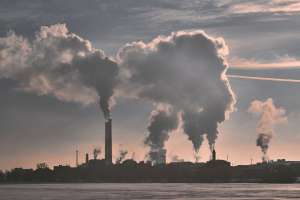Table of Contents
Burial Services and the Enviroment
Traditionally, burials have been a common method of laying the deceased to rest, but their impact on the environment cannot be overlooked. As the world becomes increasingly environmentally conscious, it’s essential to examine the ecological footprint of traditional burial practices and explore eco-friendly alternatives. In this blog post, we’ll delve into the environmental impact of burials and discuss sustainable options that are gaining traction in modern times.
- Land Use and Habitat Disruption
Traditional burials require vast amounts of land for cemeteries, contributing to urban sprawl and the loss of natural habitats. As urban areas expand, precious ecosystems, flora, and fauna are displaced, disrupting the delicate balance of the environment.
- Chemical Pollution
Embalming, a common practice before burials, involves the use of chemicals such as formaldehyde. These chemicals can leach into the ground, contaminating soil and nearby water sources, posing a threat to the environment and wildlife. Additionally, the materials used in coffins, such as varnishes and paints, can release harmful substances over time.

- Non-Biodegradable Materials
Traditional burial caskets are often made from non-biodegradable materials like metal, concrete, or hardwood. These materials do not break down naturally, leading to long-term pollution and resource depletion. Even in “green burials,” where biodegradable coffins are used, the environmental impact remains a concern.
- Carbon Footprint
The process of manufacturing, transporting, and burying caskets, as well as the maintenance of cemeteries, contributes to greenhouse gas emissions. Furthermore, the heavy machinery used in cemetery upkeep and grave digging adds to the carbon footprint, exacerbating environmental concerns.
Eco-Friendly Alternatives
Cremation
While cremation has its environmental challenges, modern advancements have introduced eco-friendly alternatives. Water cremation, or alkaline hydrolysis, uses water and alkaline chemicals to break down the body, producing fewer emissions than traditional cremation. Additionally, some crematoriums are adopting filtration systems to minimize pollutants, making a choice of cremation more sustainable.
Green Burials
Green burials, also known as natural or eco-burials, are gaining popularity as a sustainable alternative. In green burials, the body is placed in a biodegradable coffin or shroud and buried without embalming fluids. This allows the body to decompose naturally, enriching the soil and promoting new growth. Green burial sites are often designated in natural settings, preserving the environment and supporting local ecosystems.
Tree Burials
Tree burials involve placing cremated remains in biodegradable urns designed to nurture the growth of a tree. The ashes provide essential nutrients for the tree, creating a living memorial to the departed. Tree burials not only reduce the environmental impact but also contribute positively to the ecosystem.

As the environmental impact of traditional burials becomes increasingly apparent, it is essential to consider eco-friendly alternatives that honor our loved ones while preserving the planet. Cremation, green burials, and tree burials are sustainable options that minimize harm to the environment and allow individuals to rest in peace while giving back to nature.
By embracing these alternatives, we can create a more environmentally conscious approach to end-of-life practices. Making informed choices about how we say our final goodbyes ensures that our legacy includes a positive impact on the Earth, allowing future generations to inherit a cleaner, greener world. Together, we can navigate the path toward eco-friendly burials, fostering a harmonious relationship between honoring our departed loved ones and safeguarding our precious environment.
Cremation Services and the Environment
As our society becomes more environmentally conscious, it is crucial to examine the ecological footprint of various end-of-life practices, including cremation. While cremation is often considered a more eco-friendly alternative to traditional burials, it is not without its environmental impact. In this blog post, we will explore the environmental considerations associated with cremation and discuss sustainable choices that can help mitigate its effects on our planet.
Carbon Emissions
One of the significant environmental concerns related to cremation is the emission of carbon dioxide and other greenhouse gases. Cremation requires a significant amount of energy to reach the high temperatures necessary to reduce the body to ashes. This energy often comes from the burning of fossil fuels, contributing to air pollution and the greenhouse effect. To address this issue, some crematoriums are adopting cleaner technologies, utilizing more energy-efficient equipment and exploring alternative energy sources to reduce their carbon footprint.
Mercury Pollution
Dental amalgam, which contains mercury, is often present in the deceased’s teeth. During the cremation process, mercury vapors are released into the atmosphere, posing a risk to the environment. To mitigate this, some crematoriums have introduced mercury abatement systems, which capture and filter out mercury emissions, minimizing the environmental impact.
Resource Depletion
Cremation caskets, made from materials like hardwood, metal, or particleboard, contribute to deforestation and resource depletion. Additionally, the energy-intensive cremation process depletes natural gas resources, which are finite. Opting for biodegradable urns or eco-friendly caskets made from sustainable materials can significantly reduce the demand for precious resources.
Energy Consumption
The cremation process requires a substantial amount of energy, primarily in the form of natural gas or propane. To address this issue, some crematoriums are investing in energy-efficient equipment and exploring alternative energy sources such as solar or geothermal power. By transitioning to renewable energy, the environmental impact of cremation can be significantly reduced.
Air Quality Impact
Cremation releases various pollutants into the atmosphere, including particulate matter and volatile organic compounds (VOCs). These pollutants can degrade air quality and have adverse effects on human health and the environment. Implementing advanced filtration systems and adhering to stringent emission standards can help minimize the impact on air quality.

Sustainable Cremation Choices and Alternatives
Aquamation (Alkaline Hydrolysis)
Aquamation is an eco-friendly alternative to traditional cremation. This process uses water, heat, and alkaline chemicals to accelerate the natural decomposition of the body, leaving only bones. It produces fewer greenhouse gas emissions and avoids the release of harmful pollutants into the air. Aquamation is gaining popularity as a more environmentally conscious choice for end-of-life services.
Promoting Green Crematoriums
Green crematoriums are facilities that prioritize environmental sustainability in their operations. They invest in energy-efficient technology, utilize renewable energy sources, and implement rigorous emission control measures. Choosing a green crematorium ensures that the cremation process has a minimal impact on the environment.
Education and Awareness
Raising awareness about the environmental impact of cremation is essential. Encouraging families to consider sustainable choices, such as selecting biodegradable urns or opting for aquamation, can make a significant difference. Educating the public about the importance of making eco-friendly decisions during cremation can lead to more widespread adoption of environmentally sustainable practices.
While cremation is a widely accepted end-of-life practice, its environmental impact cannot be ignored. By acknowledging the challenges associated with traditional cremation and exploring sustainable alternatives, we can pave the way for a greener and more eco-conscious approach to honoring our loved ones. Implementing advanced technologies, promoting renewable energy use, and encouraging public awareness are crucial steps toward reducing the environmental footprint of cremation services. By making informed choices, we can ensure a respectful farewell to our departed while preserving the planet for future generations.
If you are interested in Arlington cremation services for you or a loved one, contact one of our local cremation providers:
Brooklyn, Cleveland, Columbus, Dallas, Detroit, Forth Worth, Houston, Indianapolis, Louisville, Milwaukee, Minneapolis, New York City, Philadelphia, Phoenix, Pittsburgh, Queens, San Antonio, St. Paul.
